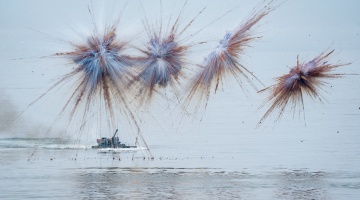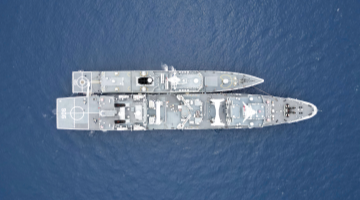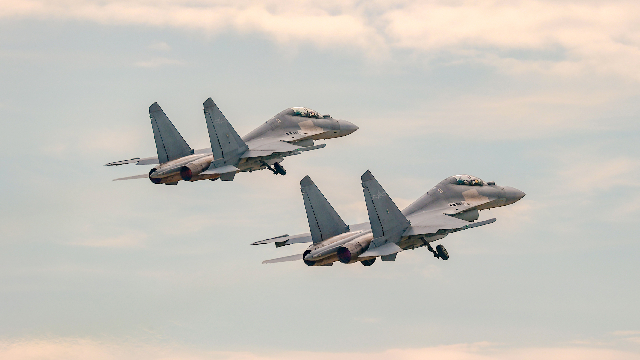By Yu Guoqing
The consulate building of the Iranian Embassy in Syria was struck by an Israeli airstrike on April 1, resulting in the deaths of several senior commanders of Iran's Islamic Revolutionary Guard Corps (IRGC) and other individuals, including 64-year-old senior commander of the IRGC's Quds Force, Mohammad Reza Zahedi. This incident has sparked an international outcry, and several countries swiftly condemned the attack.
Amid the ongoing conflict in Gaza between Israel and Palestine for nearly half a year, and the escalating tensions in the Red Sea, Israel's actions are likely to exacerbate the vicious cycle of the Palestinian-Israeli conflict, and further worsen the situation in the Middle East.
Why did Israel choose this time to attack Iranian targets? Currently, the Israeli government has not made any official statements regarding the airstrike, but many Israelis privately admit that Israel used F-35 fighter jets to attack the building in Damascus. According to Israeli media reports, Israel has instructed its embassies worldwide to enhance security measures following the incident.
Israel's decision to launch an airstrike on the Iranian Embassy in Syria is based on the following considerations.
First, in terms of external factors, Israel has long viewed Iran as its most dangerous strategic adversary in the Middle East. Israel believes that Iran has been covertly supporting various "Axis of Resistance" forces such as Hamas, Houthi rebels in Yemen, Hezbollah in Lebanon, and Iraqi militias to attack Israeli targets, posing a serious threat to Israel's security. Thus, Israel's direct strike on the Iranian Embassy in Syria is seen as an attempt to destroy the overseas commands and key leaders of Iran's IRGC.
Second, with regard to internal factors, the Netanyahu administration has recently faced significant challenges and its popularity has been declining. Domestic protests have been held demanding that the government take action to expedite the rescue of hostages detained by Hamas. Some political leaders even called for Netanyahu's resignation and early elections. To alleviate domestic pressure, Netanyahu chose to take risks, in a bid to heighten the atmosphere of war and justify the existence of a wartime cabinet.
Third, strategically, Israel's adventurism in war is also an attempt to further bind the US to its chariot, maintaining US military and economic aid to Israel. Following the airstrike, the US said it had no advance knowledge of Israel's military actions while warning Iran not to attempt to escalate its attacks on Israel. This indicates that the US is also aware of the consequences of engaging in direct conflict with Iran.
Additionally, the timing and means of Iran's retaliation, if any, have become a focus of global attention. Iran's Foreign Ministry spokesman Nasser Kanaani said in a statement on the same day that Iran reserved the right to take reciprocal measures against Israel's attack. In recent years, in the face of repeated strikes by Israel and the US on Iranian targets and important figures, Iran's retaliatory actions have been methodical. Iran generally adheres to two "bottom lines" in retaliation: not attacking Israeli targets on Israeli metropolitan territory and minimizing harm to US citizens. Whether Iran's inevitable retaliation will cross these bottom lines remains to be seen.
The United Nations Security Council convened a meeting on April 2 regarding Israel's airstrikes in Syria and most countries condemned the attack and urged relevant parties to exercise restraint to avoid further escalation. It is evident that the development of the situation in the Middle East has drawn the attention of multiple parties, and people around the world all hope for an early ceasefire and resolution of the Palestinian-Israeli conflict so as to fundamentally reverse the vicious cycle in the Middle East.
(The author is a researcher at the Institute of West Asian and African Studies, Chinese Academy of Social Sciences.)
Editor's note: Originally published on china.com.cn, this article is translated from Chinese into English and edited by the China Military Online. The information and opinions in this article do not necessarily reflect the views of eng.chinamil.com.cn.









